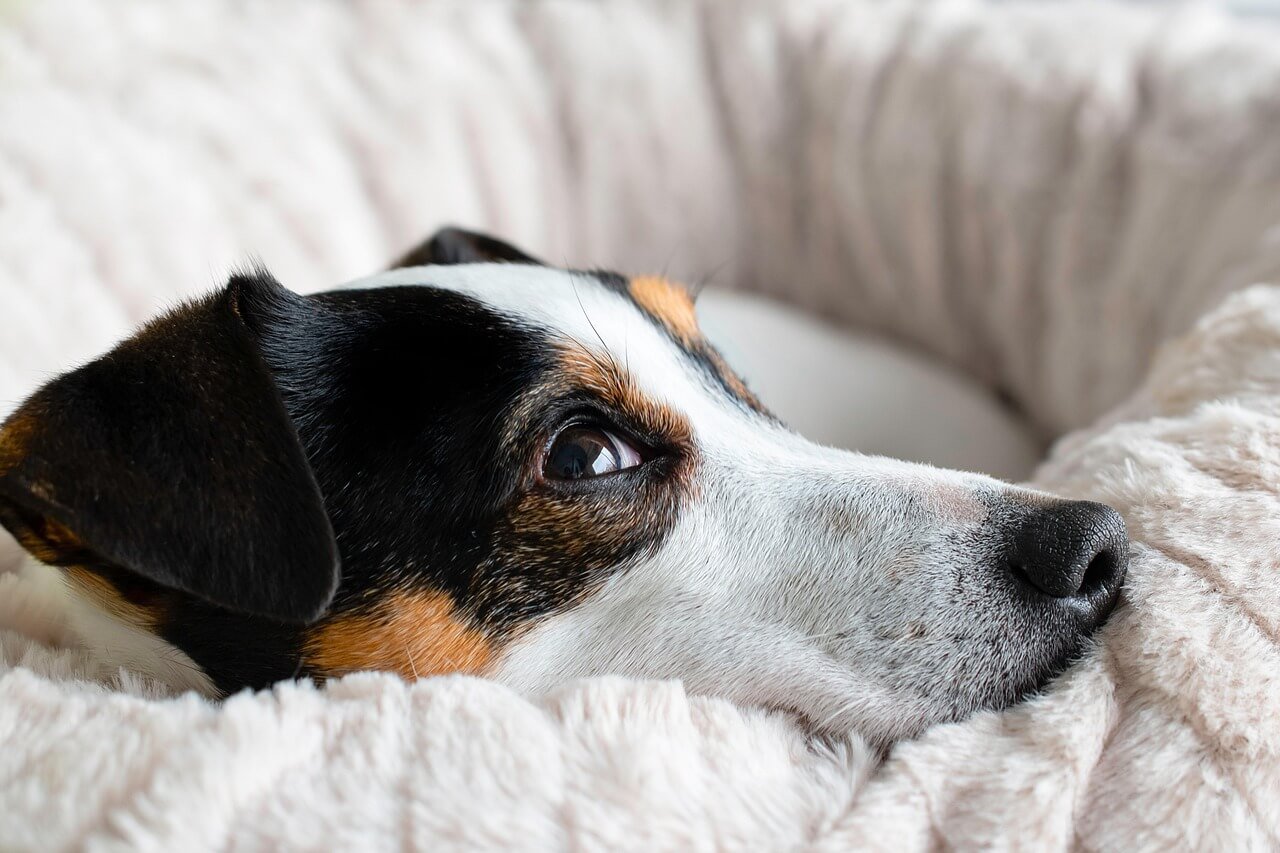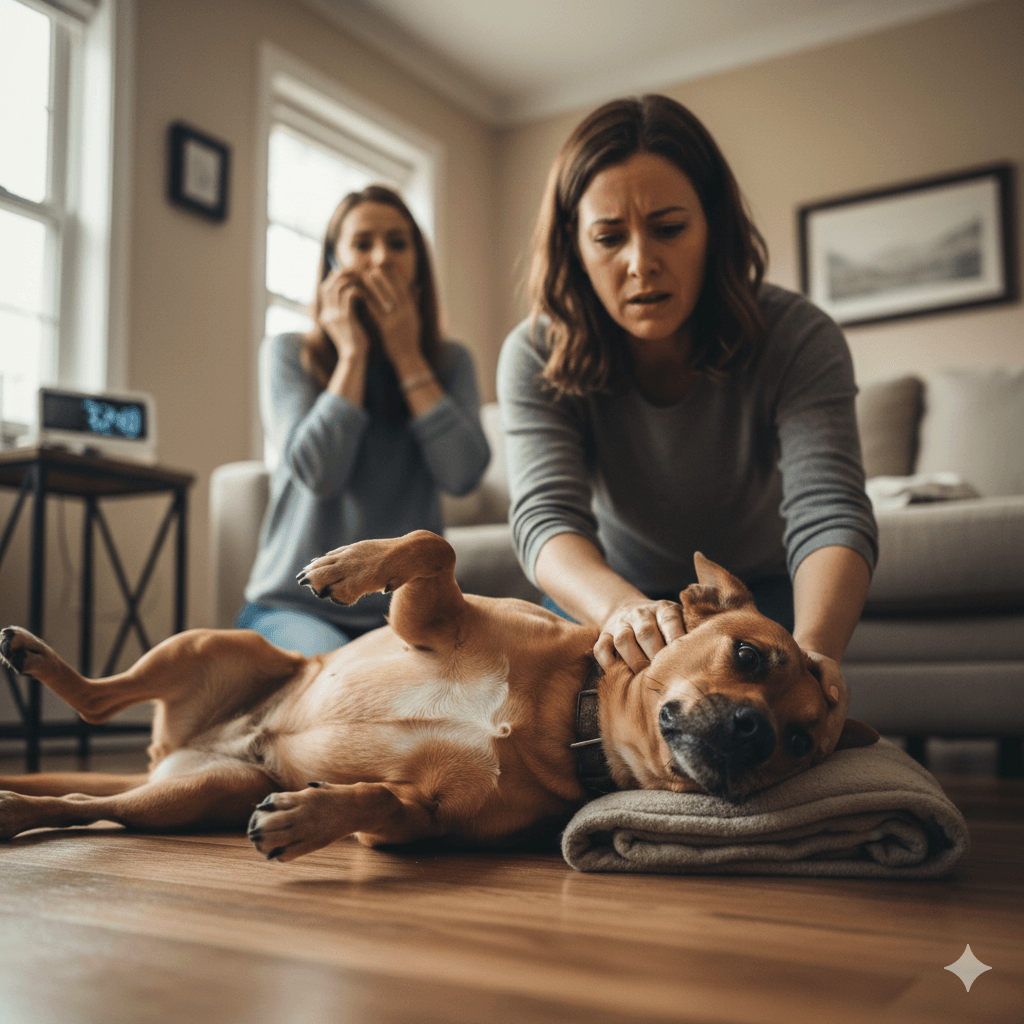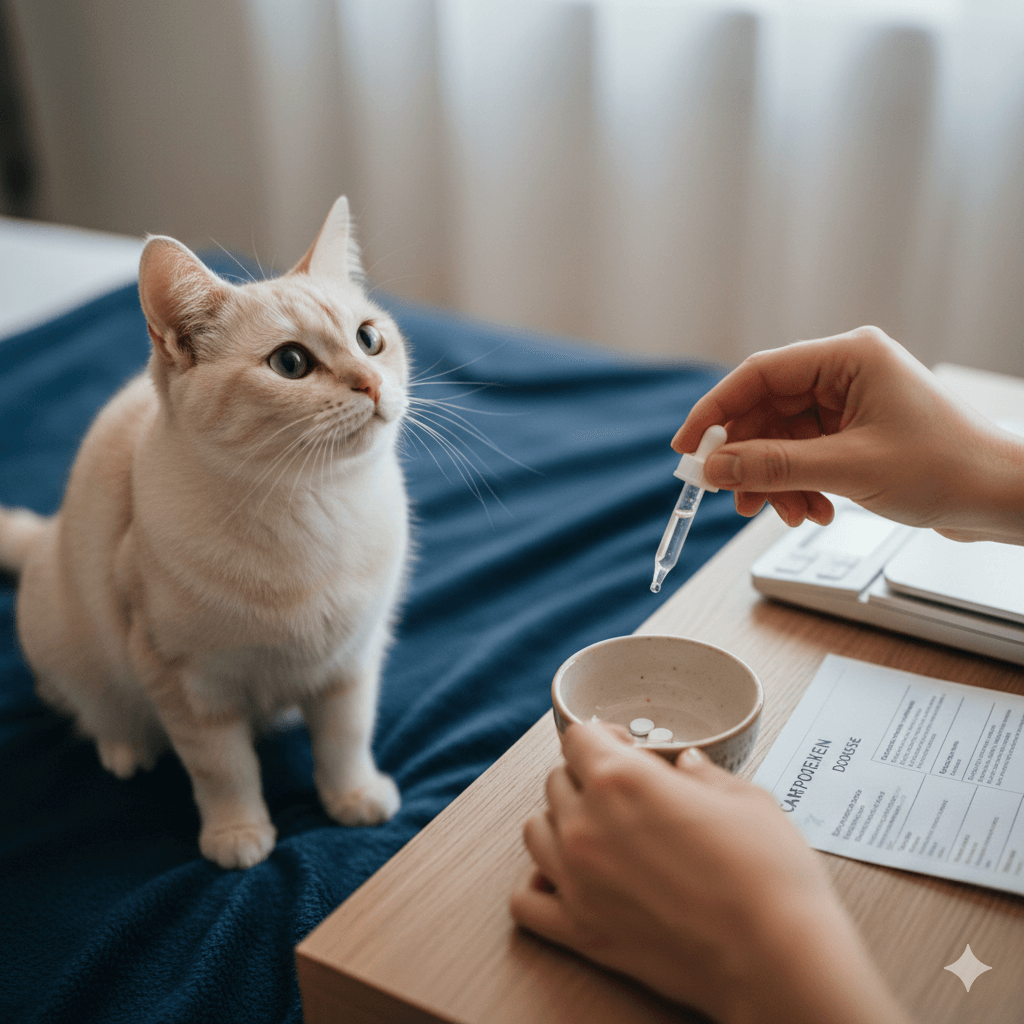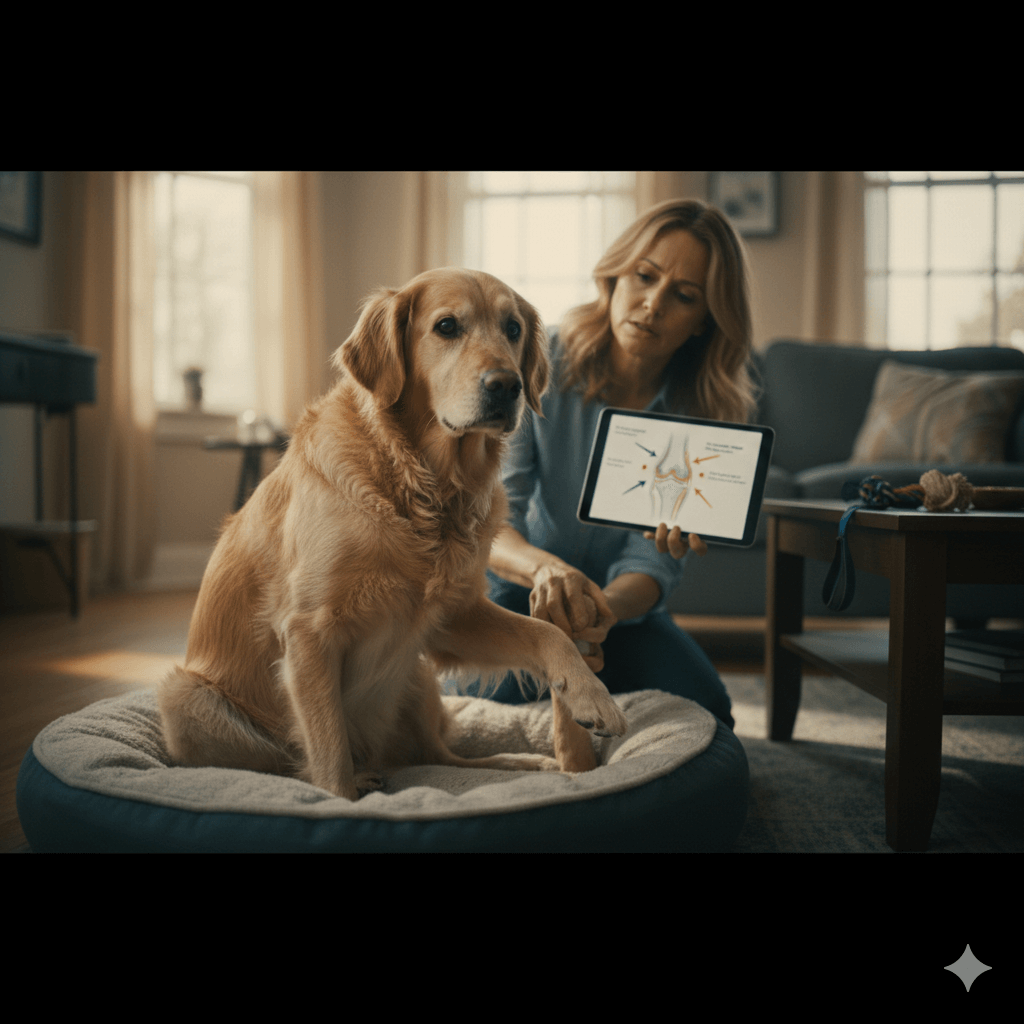Dog Making Noises in Sleep: What You Need to Know
Have you ever been startled awake by your dog growling, whimpering, or even barking in their sleep? While it might seem unusual at first, dogs making noises during sleep is actually quite common. Just like humans, dogs experience different stages of sleep, including REM (rapid eye movement), where dreams and involuntary movements occur. These sounds can range from soft whimpers to loud yelps, leaving many pet owners wondering if their furry friend is okay. In this blog post, we’ll explore why dogs make noises in their sleep, what these sounds might mean, and how you can ensure your pup is resting peacefully.
Why Do Dogs Make Noises in Their Sleep? Common Reasons
Dogs often vocalize during sleep as part of their natural behavior. Understanding the reasons behind these noises can help you feel more at ease. Here are some common explanations:
Dreaming: Dogs dream just like humans, and their noises may correspond to actions or emotions they’re experiencing in their dreams.
REM Sleep Activity: During REM sleep, increased brain activity can cause twitching, paddling, and vocalizations.
Emotional Processing: Dogs may process emotions from their day, such as excitement or anxiety, through sounds while sleeping.
Breed-Specific Traits: Some breeds, especially those with high energy or strong prey drives, are more prone to active dreaming and vocalizations.
Underlying Health Issues: In rare cases, excessive or unusual noises could indicate a medical condition like seizures or respiratory problems.
Most of the time, these noises are perfectly normal and nothing to worry about. However, if the sounds seem extreme or are accompanied by other symptoms, it’s worth consulting your veterinarian.
Types of Noises Dogs Make in Their Sleep
Not all sleep-related noises are the same. Dogs can produce a variety of sounds, each potentially linked to different activities or states of mind. Here’s a breakdown of common noises and their possible meanings:
Whining or Whimpering: Often indicates mild distress or excitement in a dream, such as chasing something or encountering an obstacle.
Growling: Could suggest your dog is dreaming about asserting dominance or reacting to a perceived threat.
Barking or Yelping: These louder sounds may occur during vivid dreams, such as chasing prey or interacting with other animals.
Soft Snoring or Grunting: Typically harmless and related to relaxed breathing patterns, especially in brachycephalic breeds.
Panting or Heavy Breathing: May accompany physical movements like twitching or paddling, signaling active dreaming.
Understanding these sounds can give you insight into your dog’s sleep patterns and help you determine if any unusual noises require attention.
Check this guide 👉Why Does My Dog Sleep on My Head? Best 7 Behavior Tips!
Check this guide 👉Why Does My Dog Sleep with Eyes Open? Best 7 Expert Tips!
Check this guide 👉Why Does My Dog Have to Sleep Touching Me? Best 7 Tips!
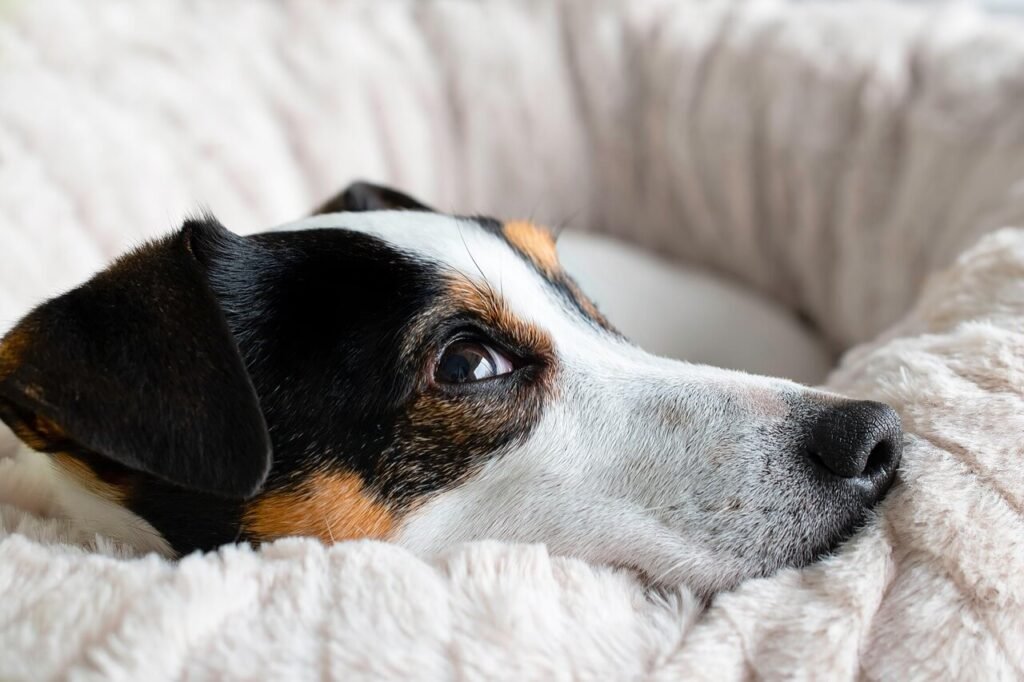
Type of Noise | Possible Meaning |
|---|---|
Whining or Whimpering | Mild distress or excitement in dreams |
Growling | Reacting to a perceived threat in sleep |
Barking or Yelping | Vivid dreams involving interaction or action |
Snoring or Grunting | Relaxed breathing, especially in certain breeds |
Panting or Heavy Breathing | Accompanying physical movements during dreams |
How to Ensure Your Dog Is Sleeping Comfortably
If your dog frequently makes noises in their sleep, there are steps you can take to ensure they’re comfortable and getting quality rest. Here are some tips:
Create a Cozy Sleep Environment: Provide a soft, supportive bed in a quiet, familiar area to promote relaxation.
Stick to a Routine: Establish consistent sleep and wake times to help regulate your dog’s internal clock.
Reduce Stress Before Bed: Engage in calming activities like gentle play or brushing to help your dog wind down.
Monitor Their Daytime Activity: Ensure your dog gets enough physical and mental stimulation during the day to prevent restless sleep.
Check for Health Issues: If the noises seem excessive or unusual, consult your vet to rule out medical concerns.
By taking these steps, you can help your dog enjoy peaceful, restorative sleep and reduce the likelihood of disruptive nighttime noises.
Signs That Noises in Sleep Might Indicate a Problem
While most sleep-related noises are harmless, there are instances when they could signal a deeper issue. Here’s what to watch for:
Frequent Twitching or Seizure-Like Movements: This could indicate neurological issues or seizures rather than normal dreaming.
Loud or Labored Breathing: Persistent snoring or gasping might point to respiratory problems, especially in flat-faced breeds.
Crying or Screaming: High-pitched or prolonged vocalizations may suggest pain or discomfort.
Restlessness Throughout the Night: Constant movement or inability to settle could be a sign of anxiety or physical discomfort.
Daytime Lethargy or Irritability: If your dog seems unusually tired or irritable during the day, it might indicate poor-quality sleep.
If you notice any of these signs, it’s important to seek veterinary advice to ensure your dog’s health and well-being.
What to Do (and Not Do) When Your Dog Vocalizes at Night
When your dog makes noises in their sleep, it’s natural to feel concerned or unsure how to respond. Knowing the right approach can help you avoid startling your pup while ensuring their safety. Here’s what you should keep in mind:
Observe First: Watch your dog for a moment to determine if the noise is part of normal dreaming or something more concerning.
Avoid Waking Them Abruptly: Sudden awakenings can confuse or frighten your dog; instead, gently call their name from a distance.
Provide Reassurance: If your dog wakes up distressed, offer calm comfort by speaking softly or petting them gently.
Document Patterns: Keep track of when and how often the noises occur to identify potential triggers or underlying issues.
Consult a Professional if Needed: If the noises persist or seem abnormal, seek advice from your veterinarian for peace of mind.
By responding thoughtfully, you can ensure your dog feels safe and secure, even during their dream-filled slumber.
Which Breeds Are More Likely to Make Noises While Sleeping?
Certain dog breeds are more vocal or active in their sleep due to their genetics, energy levels, or physical characteristics. If you own one of these breeds, don’t be surprised if they’re particularly “chatty” at night. Here’s a list of breeds known for making noises in their sleep:
Herding Breeds (e.g., Border Collies, Australian Shepherds): Their high energy and strong prey drive often translate into vivid dreams.
Hounds (e.g., Beagles, Basset Hounds): Known for their vocal nature, hounds may bark, howl, or whine even while asleep.
Working Dogs (e.g., Siberian Huskies, German Shepherds): These intelligent and active breeds often process their day through intense dreams.
Brachycephalic Breeds (e.g., Bulldogs, Pugs): Their unique facial structure can lead to snoring or grunting sounds during sleep.
Terriers (e.g., Jack Russell Terriers, Cairn Terriers): High-strung and energetic, terriers frequently vocalize during active REM phases.
Understanding breed tendencies can help you better interpret your dog’s nighttime noises and know what to expect.
Helping Your Dog Feel Calmer Before Bedtime
Anxiety or stress during the day can lead to restless sleep and increased vocalizations at night. By addressing these emotions, you can help your dog sleep more peacefully. Here are some tips to reduce anxiety before bedtime:
Establish a Consistent Routine: Dogs thrive on predictability, so set regular times for meals, walks, and bedtime.
Incorporate Relaxation Exercises: Practice calming activities like gentle massage or slow-paced training games in the evening.
Use Calming Tools: Consider products like weighted blankets or pheromone diffusers to create a soothing environment.
Limit Stimulating Activities Before Bed: Avoid rough play or exciting games that might leave your dog overly energized.
Create a Safe Space: Ensure your dog has a designated area, like a crate or bed, where they feel secure and protected.
By focusing on relaxation techniques and creating a stress-free environment, you can help your dog drift off to sleep with ease and enjoy quieter nights.
Frequently Asked Questions About Dogs Making Noises in Sleep
Is it normal for dogs to make noises in their sleep?
Yes, most dogs make occasional noises during sleep due to dreaming or REM activity.
Do dogs dream like humans?
Yes, dogs experience REM sleep and likely dream about daily activities or emotions.
Should I wake my dog if they’re growling in their sleep?
It’s generally best not to wake them, as it could startle them; instead, gently call their name to rouse them if necessary.
What should I do if my dog snores loudly?
Occasional snoring is normal, but persistent or labored breathing should be evaluated by a vet.
Can stress cause my dog to vocalize more in their sleep?
Yes, anxiety or stress during the day can lead to more active or vocal dreaming at night.
Final Thoughts: Understanding Your Dog’s Sleep Sounds
Dogs making noises in their sleep is a natural and often endearing part of their behavior. From soft whimpers to playful growls, these sounds provide a glimpse into their dream world and emotional processing. By understanding the reasons behind these noises and ensuring your dog has a comfortable sleep environment, you can help them rest peacefully and wake up refreshed. However, always stay vigilant for signs that might indicate a health issue. With love, care, and attention, you can ensure your furry friend enjoys sweet dreams and plenty of restful nights.
Dog Seizure Symptoms: Best 7 Expert Tips! – Learn to spot signs, respond effectively, and manage seizures in dogs for a healthier, happier life.
Carprofen Dosage for Cats: Best 7 Expert Tips! – Learn safe dosing, risks, and alternatives to manage pain and inflammation in cats effectively.
Africanis Dog Breed: Best 7 Expert Tips! – Explore the resilience, loyalty, and adaptability of this ancient African breed, perfect for diverse lifestyles.
Cruciate Ligament Injury Symptoms in Dogs: Best 7 Tips! – Discover key signs like limping, swelling, and joint instability to ensure prompt treatment.

